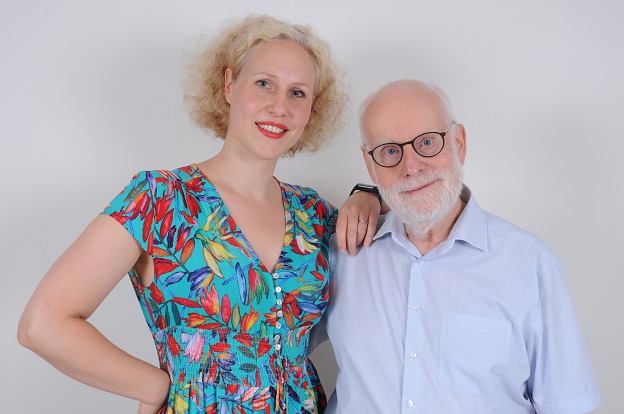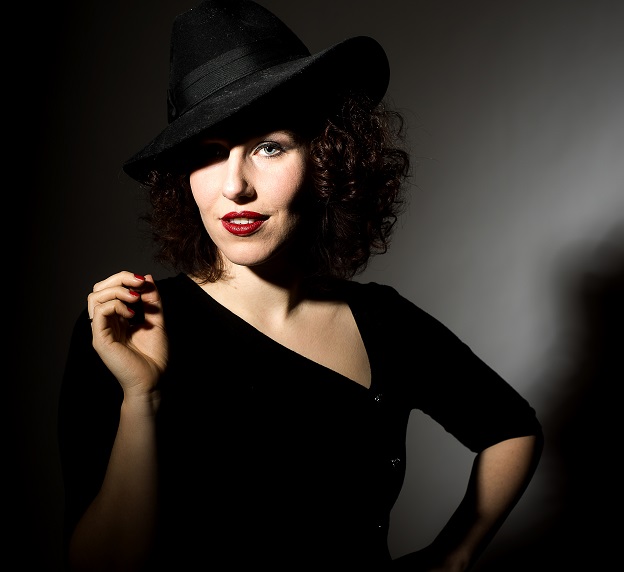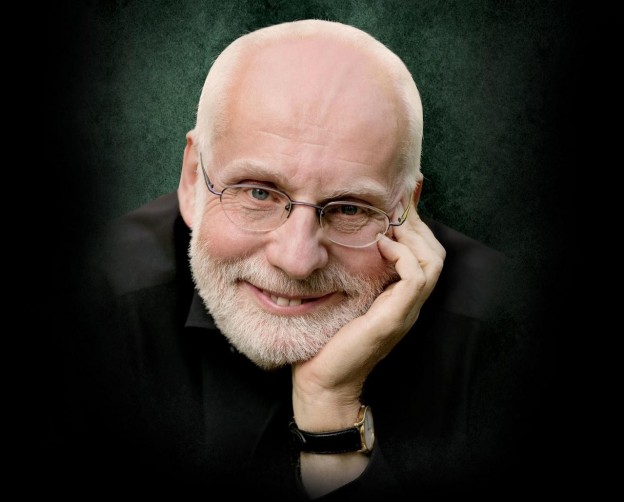Marieke, you have a father who is a baroque musician and you had a grandfather who taught you about jazz. How did you feel about jazz compared to baroque? Was jazz, to put it provocatively, a kind of liberation?
Baroque was such a big part of my life when I grew up. It was like breathing air. I was always surrounded by it. But the moment I started singing Baroque I felt something was missing. I couldn’t really understand what, but when I started to listen to jazz, falling in love with the genre, I went deeper into the mechanics and history of jazz and finally understood what was missing. There is a kind of freedom and a deeper possibility for me to express myself. I think the combination of fantastic stories, lyrics but also the kind of harmonies in combination with the rhythm finally reached home. It resounded in such a powerful way that it almost scared me. But still I didn’t quite understand why, coming from a baroque background, I only felt this way in jazz. And then some 10 years ago this part of my story was also uncovered when my father let slip during an interview that his father, my grandfather, was a jazz drummer. Then I realized that this was the path I was looking for and it gave me the confidence to really follow my heart.
What is it like to grow up with baroque music anyway?
For me growing up with Baroque music was magical. It is such an interesting music style. It triggers your fantasy in so many ways. So I had the best time playing whilst my parents where rehearsing in their rooms. As I said, for me it was normal to hear Bach, Mozart and all these other composers on a daily basis. I never knew that in other houses people listened to pop music or no music at all. I loved the historic power of the music and the stories. Because my father is a very well read man, he always had the best stories about all the music he performed. It was like living in the past whilst being in my own time.
What did your grandfather give you that your father may not have given or been able to give?
I think the confidence that what I felt was true. That there was something inside me that resounded in this fantastic jazz music. A little bit like coming home. I knew music was part of my life and I still love Baroque music when I listen to it or when I make theatre for children. But hearing how much my grandfather loved jazz and performing and experiencing the same happiness as him when I perform myself, the part of me who wants to sing jazz all day finally knew that this was the path for me.
And what do you have from the father?
That you should always keep searching for the best way to interpret music. To keep researching, to keep pushing yourself to play better, to sing better, to improve on your last interpretation. Creativity is something you need to nurture and let grow. And when you open yourself up to this energy you can reach levels of music that are incredible.
Ton, in your case the apple has fallen relatively far from the tree, hasn’t it? Did you encourage the diversity of Marieke’s artistic activities or would you rather have had a ‘baroque’ daughter?
For my wife and me, it was always clear that this was the thing my daughter wanted to do. It was the only option. To have a daughter who is able to do so many different things, is of course a great privilege. But as many of my colleagues, I saw how difficult it was for their children to make a career in the same subject as their parents. So I am very proud of her, being able to play so many different roles in music and in life. And I enjoyed the first time I heard Marieke sing Jazz very much. Because I saw that improvisation which is so important in Baroque music, was a main subject and interest between us.
Marieke, you have a master’s degree in education, you have done musical theater productions, also for children, have been involved in film productions … so all stretched out. Your CD Chapter One clearly shows you as a jazz singer. Will that be a dominant direction now, or will diversity remain?
I love my diversity. I think these different sides of my artistry make me into the artist I am. Because I need to focus on text and subtext so much in my role as an act rice and director I know very well how to interpret lyrics in jazz. So it helps me to become a better singer, and a better performer. And these different ways of looking at the art give me a new perspective, especially when I am stuck. I love to switch between the subjects, to get a fresh idea for some other subject. I don’t think I can choose and I don’t want to choose between all my jobs and interests. If it is up to me I would play a children’s theatre concert during the days and then blow away my audience at night with a jazz concert. And this is also what I learned from both my parents who also are very multi-facetted. So I am very happy I can fill the big shoes of my father who also never choose for one direction. Being multi-facetted and to keep searching for growth is what he learned me and what I aspire.
Ton, what collaboration opportunities do you see with your daughter?
I did quite a lot of theatre productions with my daughter, sometimes with the Amsterdam Baroque orchestra, sometimes with only a dancer, even a children’s version of the Matthew Passion, which we performed many times. She played the role of the daughter of Pilatus. And although we don’t know If Pilate had a daughter, she played the role so beautifully and in such a personal way. For her first cd Chapter ONE, with jazz music from the swing era, she discovered the Harpsicord was part of the instruments which where used at the time. She was able to convince me to accompany her on one of the songs on the CD, someone to watch over me by Gershwin. That was my first step, under the guidance of my daughter, to create my figured base for the Gershwin song. She was strict, knowing much more about this music than me, but in the end we both were very happy with the result.
Five years ago you told me that you felt you still didn’t know enough about music and its sources. Have you learned a lot since then?
I try to read as much as I can, to get an even better understanding than I already have from Bach, Buxtehude etc. Did I learn a lot? Yes. Because there is still so much to be learned. Interpretation is like solving a jigsaw puzzle. I and my colleagues have found all the easy parts of the puzzle in the last 50, 60 years, but now we have to fill in the difficult parts. And I hope that the results make the composers happy because that’s my only aim.
Can a ‘normal’ concertgoer or record listener also hear what you have added? In other words: Is the ‘more’ really significant?
The result of the knowledge I acquired through research and as well by experimenting with this knowledge has made me, I hope, a very creative musician, who is like Marieke, trying to aim for the best and trying to understand each individual composer the best way I can. So of course if you listen to older CDs and the newer CDs you will hear the difference. The same is for concerts. If you listen to a recording from a concert a few years ago compared to a concert now, you will hear a different Ton Koopman. Rhythm, which I certainly got from my father, emotion, variety, are things which are very important in my whole life.
What does your ‘baroque’ future look like? What is still to come?
The future of CDs for any musician at the moment is very different now than it was many years ago. To sell more than a half million copies of one CD is sadly not a possibility anymore. So it makes it even more important but also interesting for people to come to concerts to listen to your music. To be there and to enjoy the life experience, and the fun of making music. But mostly to see and hear all the emotions. For me baroque music, without emotion, without rhythm, and without musical direction should not exist.






















